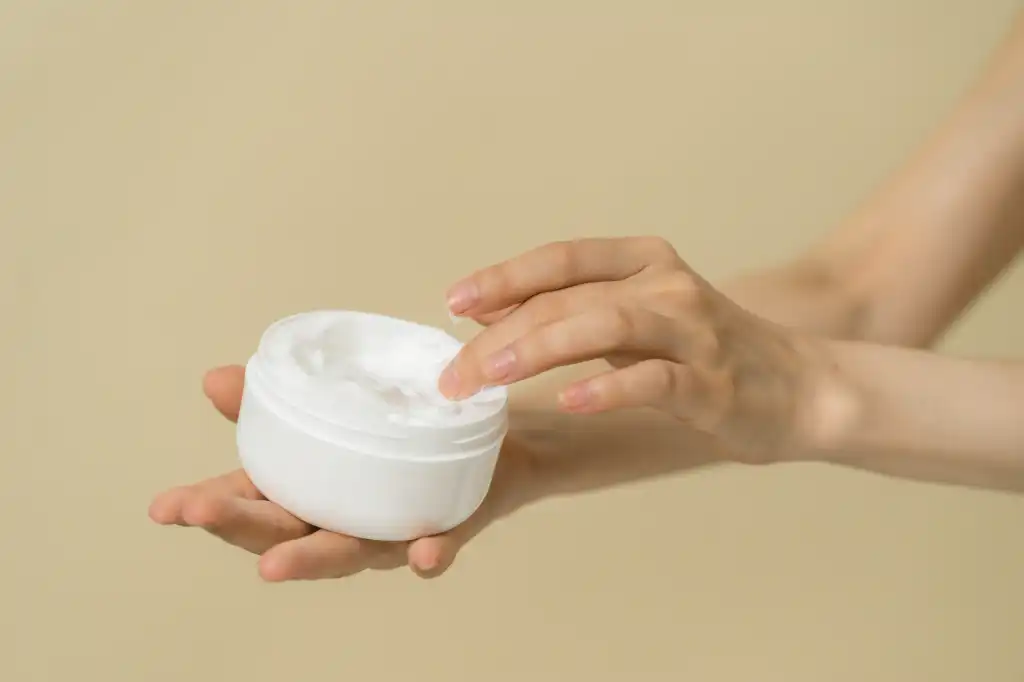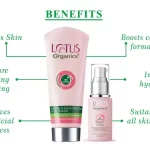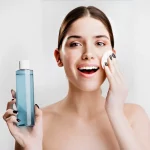Owning high-quality skin care products is insufficient to have healthy skin. For these products to work, you have to use them correctly. Also, if you have skin problems, you must establish a proper routine while using quality skin care products.
If you have sensitive skin or are unsure of your skin condition, it’s vital to consult a board-certified dermatologist who can walk you through skincare procedures. And if you’re trying to treat any significant skin condition such as severe acne or hyperpigmentation, you need the guidance of a dermatologist.
Whether or not you are new to skincare, this article will guide you to build a simple skincare routine.
What Is Skincare Routine?
Skincare routines can include daily, weekly, or monthly treatments dedicated to skincare. Skincare routines differ from person to person due to the wide range of skin conditions. Therefore, it is vital to carry out the essential steps of your morning and nighttime skincare routine in the right way.
Before building a skincare routine, there are a few things to consider.
#1. Skincare Products
There are different varieties of skincare routine products available in the market. However, it may be challenging to identify which brands have the best quality or the complete set of items you may need.
Skin is a highly sensitive part of our body and it is best to consult a qualified dermatologist who can guide you on how to safely identify and use the right products. A dermatologist will diagnose your skin and provide you the information about the essential nutrients that your skin needs. This way you are safe from buying the wrong products.
Furthermore, your dermatologist can approve any special treatment for your skin like anti-aging products or skin tightening treatments.
#2. Your Skin Type
It would help if you first determine your skin type. Do you frequently get pimples? Do you have dry skin? Knowing your skin type can help you choose the products that will work best for you.
#3. Budget And Time
Many excellent skin care products are available, but they can be expensive. With a tight budget, you can find products at the drugstore that are just as effective as those from other expensive companies.
Calculate how much time you are willing to devote to your skincare routine. This will help determine your routine processes and maintain consistency. If you don’t have much time, stick to a quick cleansing and moisturizing routine. But if you have more time, add extra processes like exfoliating and serum use. According to Austin microneedling experts, processes like microneedling and chemical peel are also good for healing your skin as it stimulates production of collagen and it removes dead skin cells. Whatever your budget or time limits are, there is a skincare routine that is ideal for you.
6 Ways To Get Your Skincare Routine Right
The skincare routine is simple. Using the correct routine ensures that any product you use works effectively. The basic steps in this routine are washing, moisturizing, and using sunscreen.
However, your night skincare routine may involve more steps. If you wear heavy makeup in the daytime, your cleanser may not remove all of your makeup at once. In this case, you may need to cleanse twice with an oil and water-based cleanser. Here are all the steps to build an effective and consistent routine for your skin.
#1. Cleanser
Every skincare routine must begin with face cleansing. It removes impurities and extra oil that can clog pores and dull skin. Be gentle, though. Many individuals cleanse too frequently or with a too-harsh cleanser, which damages the skin’s protective layer.
Here is how to cleanse:
- Clean your face using a cotton pad soaked in micellar water or cleansing oil.
- Rinse your face with water.
- Massage a few drops of cleanser between your palms.
- Apply little pressure while massaging the face wash all over your face.
- Once the cleanser and filth are removed, rinse your hands and massage your face with that water.
- Gently pat your face dry with a soft fabric. Finish with a mild full-face cleanser.
#2. Tone Confidently
After using a cleanser, apply a toner. A toner is a water-based skin care product that helps hydrate dry skin. It is also a leave-on skincare product before using serums and moisturizers. More importantly, a quality toner can ensure that your skin is spotless and clear of impurities. Some people skip using toners because they believe most toners to be harsh and irritating to the skin.
However, today’s manufactured toners provide antioxidants, vitamin B derivatives, and toning acids, among other things. Also, each type of toner is designed to address different skin types. Therefore, applying the right toner for your skin condition is vital. Depending on your skin type, the following substances are the ones you should search for in a toner:
- For acne-prone skin: Look for a toner with hydroxy acids, such as salicylic and lactic acid, which promote cell turnover.
- For dry or sensitive skin: Consider a moisturizing toner without alcohol and with calming contents like glycerin and hyaluronic acid.
- For combination skin: Seek gentle exfoliants, hydration-improving ingredients, and antioxidants like vitamin C, vitamin E, and green tea which can fight free radicals and avert skin damage.
- For oily skin: Look for astringents that tighten pores, such as alcohol.
If you find any of the products in your skincare routine causing unexpected or aggressive reactions on your skin, seek dermatology services immediately. A dermatologist will help you find the right treatment and routine for your skin condition and will assist you with finding out about your allergies if any.
Below are the steps to apply a toner:
- Soak a cotton pad with a quality toner.
- Wipe your entire face, neck, and down to your chest.
- You can apply toner to your palms and press gently to your face if you want to skip a cotton pad.
#3. Maximize Your Serum
A serum specific to your skin concerns can treat and protect your skin. They contain concentrated active substances that can prevent and reduce wrinkles and dark spots. However, you should carefully study the labels because some serums work best in the morning, while others work best at night.
Additionally, if you already have wrinkles, they can still be corrected through botox dermatology. Below are the ingredients embedded in a quality serum and their usefulness:
- Hyaluronic acid helps to keep moisture and strengthens the skin’s top layer and barrier function.
- Vitamin C is essential for achieving bright skin with little or no dark spots.
- Retinol, vitamin B3, and peptides increase the body’s formation of collagen and elastin – proteins that help prevent wrinkles and sagging skin.
- Niacinamide, colloidal sulfur, and niacin reduce inflammation and soothes redness. They also help treat acne and reduce bacterial growth.
Note that the skin naturally regenerates while we sleep. This is why most targeted skin care products, such as retinol creams, prescription medications, and anti-aging serums are more active at night. Therefore, it is advised to do your routine both night and day.
#4. Protect Your Eyes
Eye cream is an essential product for your skincare routine. Dermatologists advise people to start the usage of eye cream in their 20s. This is because the skin around your eyes is usually the first to show signs of aging. Eye creams help shield your sensitive eye area from other skin care products. They also prevent fine lines, lack of firmness, dark circles, wrinkles, or undereye bags.
To protect the sensitive eye area from substances that could irritate it, you should apply eye cream before treatments.
- Try niacinamide to fight dark circles.
- To reduce puffiness, consider a caffeine-containing product.
- Look for formulations with retinol and peptides for wrinkles and sagging skin. Vitamin K helps dark undereye circles.
Use your fingertips to tap on an eye-area product lightly, then apply gently in the morning and at night to prevent damaging your delicate skin.
#5. Moisturize Generously
The next thing in the skincare guide is face moisturizers. They keep your skin hydrated and soft and also aid in improving its barrier. They also supplement the skin’s naturally occurring protective oils and other structural components, such as ceramides.
It’s best to apply a moisturizer when the skin is still damp. You can do this immediately after using your serum and treatment; so your skin can seal in much-needed hydration with your moisturizer. Dermatologists advise using moisturizers for all skin types because maintaining proper hydration is essential for maintaining youthful skin.
If you have oily or acne-prone skin, it is best to choose a lighter moisturizer during the day. It should be lotion or gel-based that will absorb fast and won’t pile beneath makeup or skin. In contrast, consider a cream with heavier composition if your skin is dryer. Also, for sensitive skin, seek out formulas that are hypoallergenic and irritant-free (alcohol, fragrance).
You can choose to use a daytime moisturizer at night. However, using a thicker cream is more hydrating and suitable for nighttime.
Here is how to apply your moisturizer:
- Add a generous amount of moisturizer to your skin and massage for a few minutes. This will increase its absorption and enhance circulation.
- If you’re using a spot treatment for acne, try avoiding applying moisturizer to those areas so that its contents won’t conflict with the active components in your spot treatment.
#6. Use Sunscreen
Sunscreen is the product that gives your routine its defined essence. The sun is the leading cause of accelerated aging of the skin. The damage caused by the sun goes beyond appearance and causes skin cancer.
The two primary categories of sunscreen formulations are:
- Chemical sunscreens that are produced with substances like homosalate and avobenzone, which absorb UV rays that come into contact with the skin.
- Physical sunscreens, often known as mineral sunscreens, are made of mineral compounds like zinc oxide and titanium dioxide that reflect UV rays off the skin.
A few SPF formulations have both chemical and physical components. However, dermatologists suggest pure zinc oxide and mineral sunscreens for sensitive skin.
It is important to avoid sunscreen sprays or gels with alcohol if you have dry skin. And dark-skinned persons may prefer chemical sunscreens to prevent the bleaching that some physical formulae cause.
Conclusion
A skincare routine is vital if you want to keep your skin healthy. Building an effective skincare routine is simple. It is important to consult a dermatologist or a skin specialist to know your skin type before purchasing skincare products.
Have both day and night routines to achieve the perfect skin. Naturally, your skin regenerates and heals itself as you sleep. Therefore, your bedtime routine is the ideal time to ensure that your skin receives the maximum nutrients and active chemicals.
Unlike the daytime routine, you don’t need sunscreen in your nighttime routine. However, you can devote time to add extra steps like exfoliating and other facial treatments.
Remember to find a convenient time so that you take your time and take every step.










